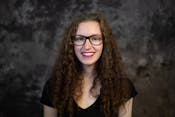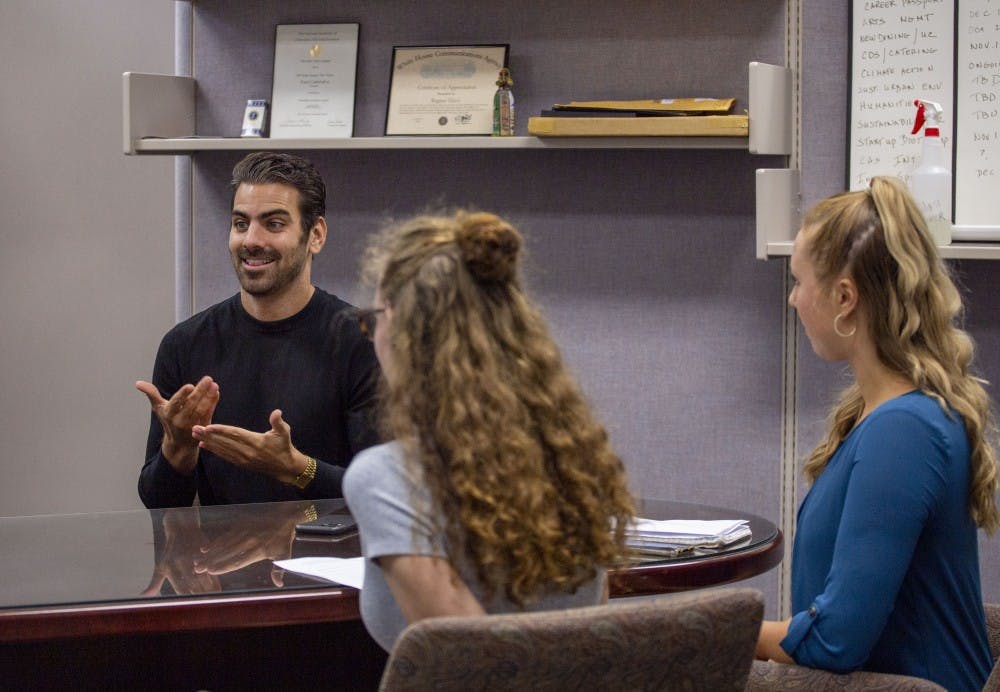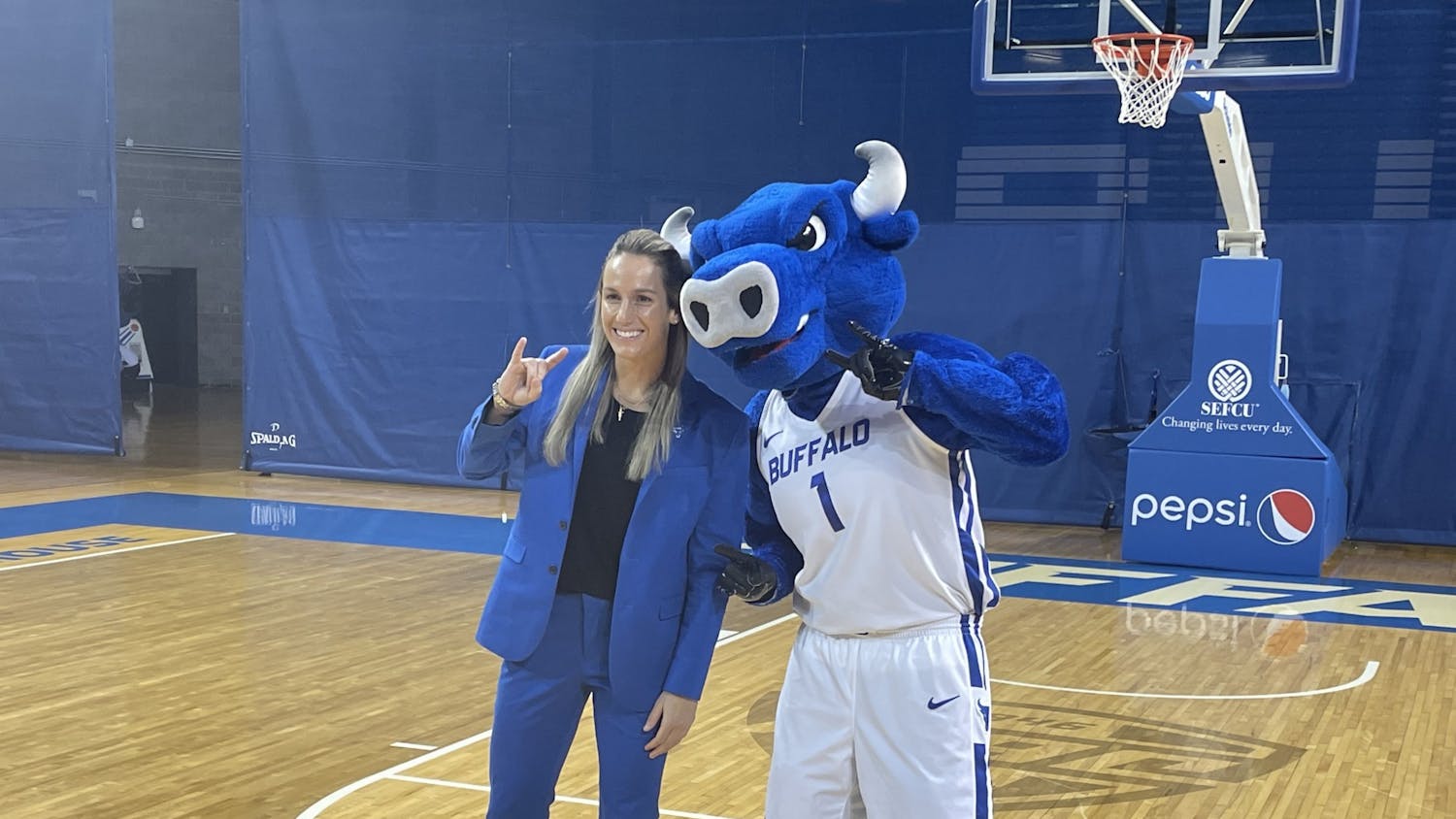Nyle DiMarco can see the differences between himself and his deaf family members who didn't have the same access to language and education he had as a child.
Now, he’s working to make sure children today have these opportunities.
DiMarco, a deaf activist, actor, collaborator for the ASL App and winner of “America’s Next Top Model” and “Dancing with the Stars,” met with Spectrum editors before his sold-out speech at the Center for the Arts on Wednesday.
DiMarco, the first speaker of this year’s 33rd annual Distinguished Speakers Series, discussed milestones, his foundation and the intricacies of his Twitter humor.
The Spectrum: So you're our first distinguished speaker, giving a speech entirely in sign language. How important is that to you? And how do you hope it impacts our community?
DiMarco: Well, thank you. I'm thrilled to be able to present to the audience tonight and certainly to the students [in] Buffalo. I'm really excited about teaching them about deaf culture, teaching them about what the lives of deaf people look like and how we're able to function as much as any other human person in the world and hopefully, inspire them to love who they are and their own identity no matter what that is. My speech typically includes talks about our lives and how we can kind of coalesce our identities and use our differences as an advantage if we learn to love ourselves first.
TS: So through your foundation, you advocate for deaf children to learn sign language before they're five. Why are you such a huge advocate for this and what's the importance of parents with deaf children learning sign language?
D: I've been a huge advocate for this. My parents are deaf and so are my grandparents. They didn't have access to the same language that I did growing up, so their lives were very much defined within the confines of the box. My life was very different and I can see such a large difference between us and I think that every deaf child out there should have the exact same opportunities that I've had: access to language, to education, to communication, to all of that. It's important to mention I want to teach about this topic because the big picture is really to make sure that the child has access to a language before the age of five. Reason being, after the age of five, [the] critical language acquisition period in the mind closes and not only does it deprive children of language but also causes brain damage in that five-year time frame.
TS: You've mentioned that sign language helped you open up with your sexual fluidity. What is it about sign language that empowered you to express yourself?
D: So sign language is not only my first language, but by far my most comfortable language. In that way, I'm more comfortable expressing who I am, my feelings, my thoughts, my emotions, all the things that are intrinsic to being human. [There are] so many people out there without language, who don't have a full language to be able to express themselves, certainly not emotionally. I don't think that it's really possible to truly fully love who you are without having a language. I'm incredibly fortunate to be able to define who I am.
TS: So we noticed how active and popular you are on Twitter. You incorporate a lot of humor into your tweets, and what ways do you like to incorporate your humor into your advocacy?
D: It's funny because in the beginning a lot of people would take my jokes incredibly seriously. They would assume that deaf or disabled people were not able to be funny. I’ve kind of been making a mockery of myself and things around me [and] I'm like, ‘Don't be concerned, it's okay to laugh.’ That happens again and again, but I'm kind of big on being funny about things. I'm rarely serious and I think that's really just a big part of who I am. Oftentimes, people [see] me as “that” person, and that's not just who I am, I am a lot more than that.
TS: So I saw in one of your interviews you called The Bachelor your guilty pleasure, but you don’t want to go on it because it would be awkward to have an interpreter in the room all the time. What's dating like for you?
D: Before I became a celebrity, I mostly dated deaf girls, some hearing girls. But after becoming a celebrity, 99% of my time now is in the hearing world and sitting, dating, even hearing people is definitely a weird experience. It's like I speak another language or they speak another language –– we don't share one. So if I want to develop a relationship, we often have to teach sign language at the same time that we're trying to develop a love connection [and] I don't think that's ideal. It's important that somebody should know my language first and then we're able to move on to communicate.
Alexandra Moyen contributed reporting to this article.
News desk can be reached at news@ubspectrum.com.

Lauryn King is the assistant managing editor for The Spectrum. She’s a busybee and copy editor at heart.
Brittany Gorny is the senior news editor.





